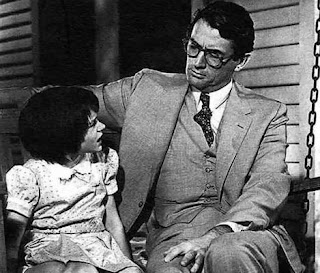by guest blogger Courtney
Dr. Khushdeep Malhotra works at the Morehouse School of Medicine Satcher Health Leadership Institute where she is a Health Policy Leadership Fellow. Throughout her career she has won numerous awards for her scholarship and service. As we are studying the language of oppression, I was interested in asking her about strategies she might advocate for developing social justice.
CW: I see that you began your medical career as a dentist. Tell me, what made you want to move into the field of public health?
KM: As a dentist, I was frustrated at having to treat the same individual conditions again and again- especially since the same people kept coming back! I understood then that I needed to address oral health on a grander scale. I completed a three-month community dentistry internship in a village in Karnataka, India and thoroughly enjoyed the community-based approach to practicing dentistry. So, I decided to get further training and got accepted to the MPH [Master’s in Public Health] program at WKU [Western Kentucky University].
CW: What are some of the populations with whom you work, and what kinds of health related struggles do they face?
KM: So far, my work has been with youth who are considered to be 'at-risk' in society. I have worked specifically with incarcerated children. Not only are lifelong outcomes poor for these kids if they are not given the right kind of support, but health, which is tied to overall development, school performance, 'success' is often worse in these kids compared to the general population. For instance, rates of STDs, substance abuse, mental health illnesses and oral health needs are much higher in these kids. Achievement gaps in school have also been documented.
CW: What are some of the ways that the language of oppression entrenches health problems for marginalized individuals? When working on creating strategies for health equity, how much attention is paid to the language of liberation?
KM: Sadly, language is something we (even providers) don't pay enough attention to. One may not intend to be culturally or socially insensitive, but lack of training or prior experience working with these special populations may be difficult for healthcare providers, given there is little to no training in medical/dental schools about delivering care to such patients. In addition to resulting in poor patient satisfaction (and in general, outcomes), not getting appropriate linguistic/cultural competency training may reinforce the stigmas associated with a marginalized identity. Although there is a lot more focus now on cultural competency than there ever has been previously, there is still not dedicated training in all healthcare fields to address these gaps. It is imperative that attention be paid to this training, and public health, which is often the safety net provider of many of these 'marginalized' populations, is paying greater attention to their cultural/linguistic needs, but a lot remains to be done.
CW: I know you are very interested in studying forensics education, debate, spoken word, and other pedagogical approaches as a means of advancing public health equity and advocating public health policies. What drew you to competitive forensics as a tool for public health?
KM: My own experience as a debater in school for over 10 years made me realize the importance of communication in regards to the empowerment of communities and people. Since social justice is integral to the foundations of public health, I think it is only natural to use forensics tools such as debate, spoken word and etc. to advance health, especially with young people. Understanding that they have control over their health and the choices they make, and ability to weigh risks versus benefits, allows youth greater control over their health, and therefore towards making better choices. Spoken word especially resonates with these young people. As they critically deconstruct content, they realize how much of it is applicable to their own context, and how much they are in charge of recognizing and exercising healthier choices.
CW: What kind of advice do you have for someone, oh, say a communication graduate student, that is interested in helping to make real change in the community?
KM: Tough one. Real change is slow, and requires persistence. So I would say, first and foremost, persevere. Learn to accept that change will be slow to come and keep working towards it. Communication is a powerful gift to give to another, and so is the presentation of scientific evidence. So find ways in your field to incorporate this evidence into your work, when advocating for a cause.
For further discussion, Dr. Malhotra can be reached by at khushi_jovi@yahoo.com







